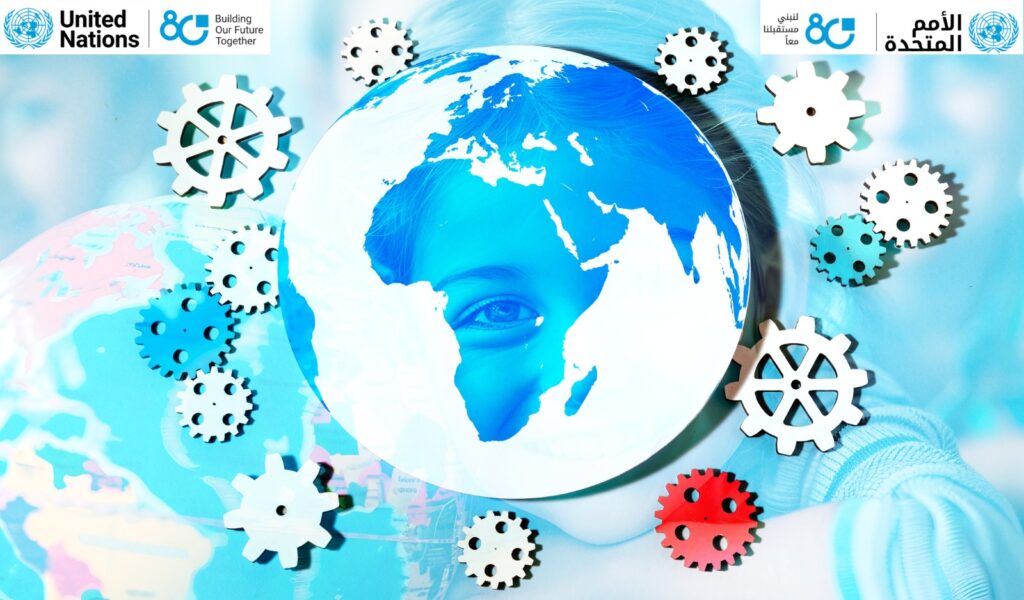
By Maria Mariani
As the 80th United Nations General Assembly (UNGA) opened on September 9 in New York City, world leaders are gathering amidst unprecedented challenges in peace, security, and global governance.[1] This year’s assembly is not merely a forum for diplomatic dialogue; it rather comes at a critical and fragile time for addressing urgent crises that threaten global stability and security, particularly in light of ongoing war on Gaza, rising geopolitical tensions, and dramatic financial cuts to the humanitarian aid, having drastic consequences for the world’s most vulnerable.
The forthcoming UNGA has been anticipated by a significant point of controversy, emerged with the United States’ decision to withhold or revoke visas for Palestinian Authority and Palestinian Liberation Organization officials, preventing their attendance.[2] Despite that move, in a landmark vote on last Friday, 142 nations adopted the Saudi-French New York Declaration for an independent Palestinian statehood, giving new momentum to the two-state solution.[3] This vote, reflecting an unprecedented global consensus for international recognition of Palestine safeguards and Palestinian right to self-determination, now paves the way to the next UN conference on the two-state solution, co-chaired by Riyadh and Paris, on September 22, where a number of states including France, the UK, Canada, Belgium, and Australia have pledged to formally recognize the state of Palestine.[4] This is the latest step in growing international pressure on Israel to end its war on Gaza, which has killed more than 64,000 people, injured tens of thousands, and created famine conditions amid a worsening humanitarian catastrophe.
This war serves also as a stark reminder of the UN’s foundational mission to promote peace and security worldwide, as outlined in its Charter[5] and in the spirit of the Universal Declaration of Human Rights.[6] With the humanitarian crisis in Gaza escalating, the urgency for decisive action is undeniable and so far, the UN system has failed to provide realistic responses. The relentless attacks on the people, the recurrent violation of the international humanitarian law, the impunity in which occupying countries act casts a shadow over the future of multilateral institutions and the international legal framework designed to protect individuals and uphold justice.
Compounding these challenges is the UN’s ongoing funding crisis, which has reached a critical point. The Trump administration has undertaken widespread cuts to foreign aid, including hundreds of millions to UN agencies and caps on further spending, which is a significant scale-back, as the US remains the largest funder of the UN, providing about $13bn in 2023.[7]
Many member states struggle to fulfill their financial commitments, severely hindering the Organization’s capacity to respond effectively to crises. This situation not only undermines the UN’s operational effectiveness but also raises questions about its legitimacy as a global governing body. If the UN cannot secure adequate resources to fulfill its mandate, its role will continue to diminish.
Moreover, the current funding model is increasingly perceived as inequitable, with calls for reform growing louder. More countries from the Global South, in particular India, Brazil, China, South Africa, are demanding a more substantial role in shaping the UN’s agenda and decision-making process. This call for greater representation is not simply a matter of equity; it is essential for effective governance in an era where power dynamics are globally shifting. The UN must adapt to reflect the diverse realities of a multipolar world, where different perspectives are crucial in addressing the complex challenges of peace and security. This push from the South is not an attack to the multilateral world or a call to dismantle the UN system, rather it is an opportunity to remake the system of global governance, to suit ends more precisely, and also to serve people more directly, since these countries represent most of the world’s population.
Conclusively, as we are witnessing an alarming rise in violence and instability, spanning from the Arab region to Eastern Europe and beyond, it is imperative for world leaders to confront the pressing challenges of our time with urgency. The consequences of inaction are already proven to be dire, as the war on Gaza is highlightening how debilitating major-power division can be with millions of lives at stake.
Therefore, during this UNGA, member states are once more urged to turn their pledges and commitments into tangible results.
The success or failure of these efforts will be critical, not only in determining the future credibility, relevance and effectiveness of the UN, but also in reshaping the current multilateral system. If member states fail to act decisively and courageously, we risk a scenario where the world is governed by the strongest and most aggressive players, threatening international stability and security. Word leaders must then unite in a concerted effort, strongly affirming their responsibility to promoting and safeguarding the principles of humanity, solidarity, justice and peace, as they pledged to do when when they adopted the UN Charter.
[1] https://www.un.org/en/high-level-week-2025
[2] https://www.aljazeera.com/news/2025/8/29/us-denies-visas-for-palestinian-officials-ahead-of-un-assembly
[3] https://www.arabnews.com/node/2615205/middle-east
[4] https://www.aljazeera.com/news/2025/9/9/illusions-stripped-away-what-to-know-about-the-80th-un-general-assembly
[5] https://www.un.org/en/about-us/un-charter/full-text
[6] https://www.un.org/en/about-us/universal-declaration-of-human-rights
[7] https://www.theguardian.com/commentisfree/2025/jul/06/the-un-is-our-best-defence-against-a-third-world-war-as-trump-wields-the-axe-who-will-fight-to-save-it
Our flagship newsletter provides a weekly round-up of content, plus receive the latest on events and how to connect with the institute.